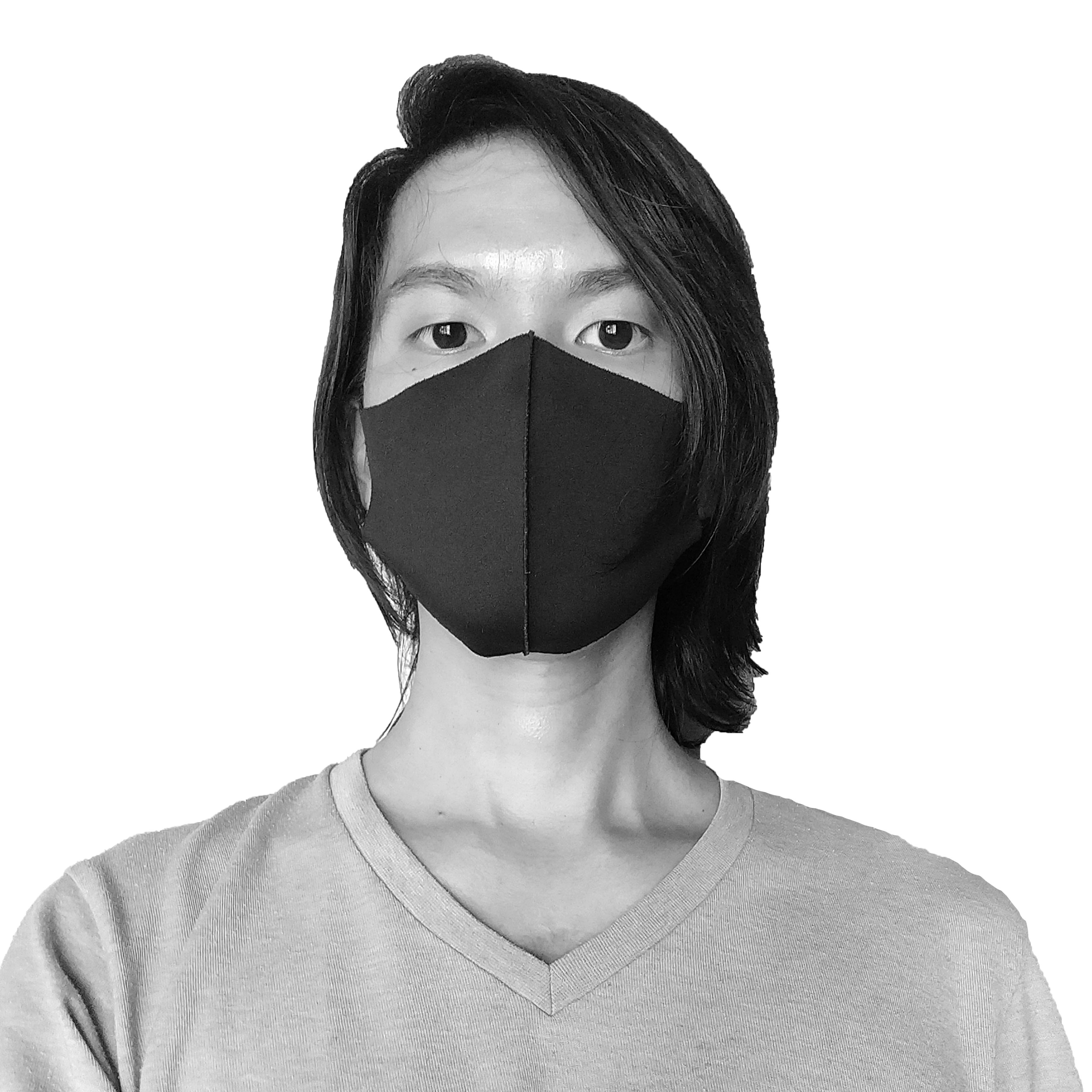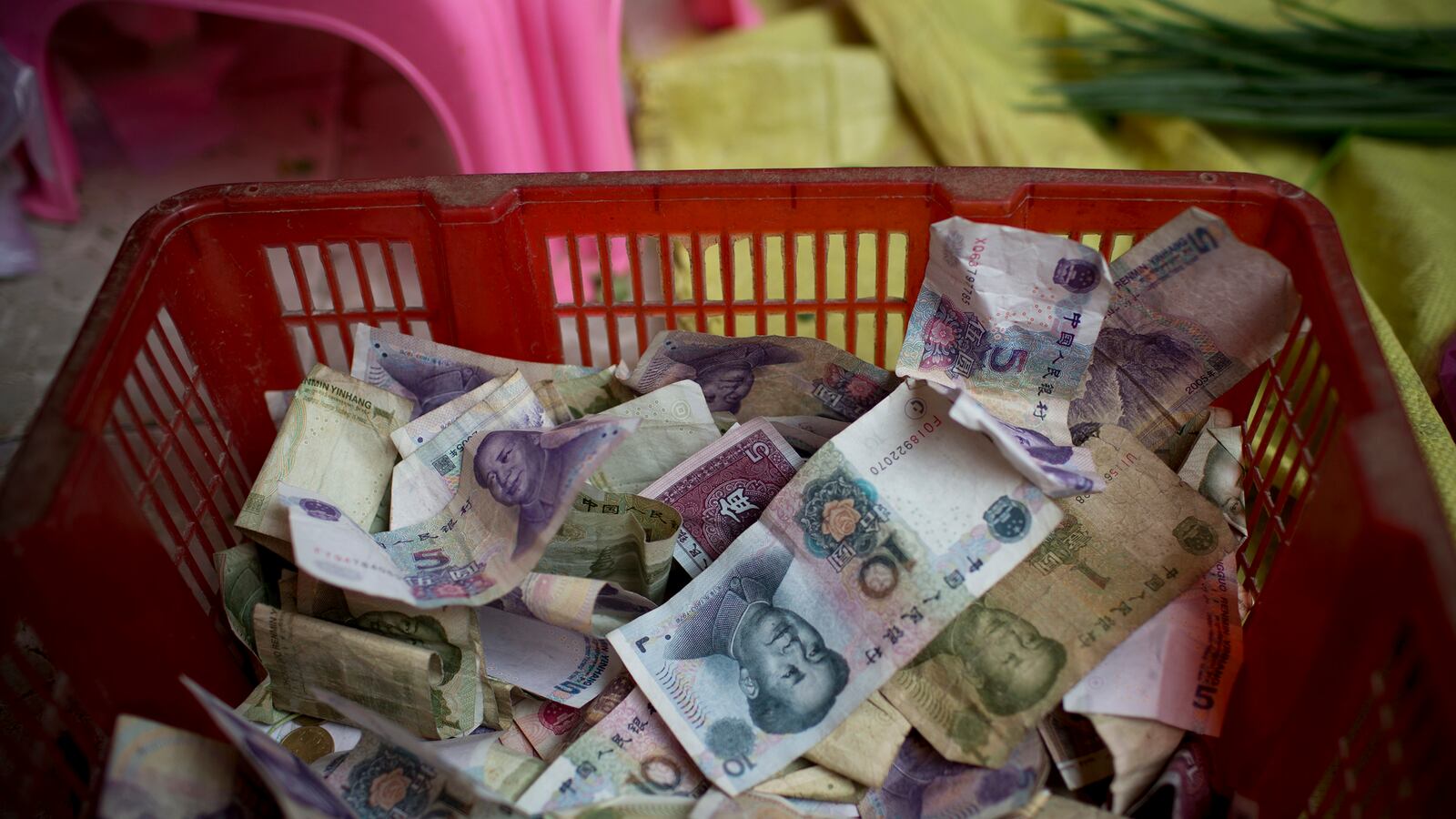Smugglers have long taken advantage of the porous border between Hong Kong and Shenzhen to cross back and forth with black-market goods to sell. A century ago, they carried opium, Western medicine, and rice. Now, the goods that are in vogue include baby formula, iPads, and hair care products. Chan Kwong, a sexagenarian from Hong Kong, works for a smuggling ring to supplement the financial assistance he receives from the government each month. Each run earns him around ¥40, or less than $7, when he hands over the goods to a parallel trader in Shenzhen. He can do this up to five times a day, and is paid in Renmenbi, or yuan, the Chinese currency. This is a snag because Chan lives across the border, where the Hong Kong Dollar is used. There are plenty of bank branches and currency exchange centers just a stone's throw from either side of the border, but Chan thinks the service fees are too high. To convert his earnings, he visits an underground bank in Shenzhen before returning home.
On the street level, black-market banks in China never advertise their enterprise. They exist as tea leaf shops, cellphone vendors, or snack kiosks, but might have a couple hundred thousand yuan stashed in a chest of drawers. Working under the radar, they court clients who need to convert yuan to Hong Kong Dollars, with rates that appeal to those in the know. Eventually, they develop a set of repeat clients—mostly traders with business on both sides of the border, or gamblers on their way to Macau—who spread the news about the underground banks by word of mouth. With no marketing or advertising, and only a single service—cash for cash—underground banks in China have blossomed into multi-million dollar operations that are able to move faster and more efficiently that regulated Chinese banks.
Chan Kwong saves up for a month or two at a time before he converts his cash with the Zhous, four cousins who operate an illegal money-changing service near the Shenzhen-Hong Kong border. Even though he may only save an extra ¥50 ($8.25) with the Zhous compared to legitimate exchange centers, he is happy with that. He says that there is no extra hassle and no extra risk.
To provide the money-changing service for Chan, the Zhous need to stockpile Hong Kong Dollars. Their seed money came from a smuggling operation that they ran prior to the 1997 handover of Hong Kong from the UK to China. Several years after the handover, as multi-entry visas for Hong Kong became easier for Chinese nationals to acquire, and wealthier Chinese families were itching to move their money overseas, the Zhous saw an opportunity to enter the field of unregulated finance. “We have a relative in Hong Kong who does business in Mainland China,” one of the Zhous said. “Once a week, he visits us to pick up Renmenbi for his import business, and in return he maintains a pool of Hong Kong Dollars for us across the border. He is family, so we trust him. We all avoid the official exchange rates, and everyone is happy.” Unless a client makes an extraordinarily request, this exchange involves about $500,000 per week, though it could be up to fivefold that amount if it is a public holiday, like during Golden Week in October.
The Zhous also have clients from mainland China who want their cash converted into Hong Kong Dollars, with balances far greater than Chan Kwong's. It works like this: the Zhous receive Renmenbi in Shenzhen, then have their relative in Hong Kong deposit HKD into the client's bank account in Hong Kong within 24 hours. After the client crosses the border to Hong Kong, the money can be withdrawn or moved worldwide with much greater ease. Under mainland Chinese law, each citizen cannot take more than $50,000 out of the country per year, whereas Hong Kong has no such cap. For the nouveau riche who made their fortunes in yuan, many rely on channels offered by enterprising individuals like the Zhous if they wish to make significant investments overseas, such as the purchase of a second home.
This might sound like a game of magic cups, but in the time that the Zhous have been at it, they have adapted and thrived, expanding to open new branches of their operation first in Shenzhen, then in Zhuhai, Mainland China's port with Macau, catering to the needs of those with wealth and wasta.
Since none of the transactions made by underground banks are regulated, there is ample space for fraud. It is easy for an unscrupulous individual to pose as an underground banker, snatch up several large deposits, then cut and run. While there have been such cases in the past, the industry operates on an honor system that encourages repeat business. The Chinese government has spent years trying to crackdown on illegal money transfers, but there are too many underground banks dotting the country, and the density of cash flow makes it nearly impossible to trace. Besides, without underground bank branches overseas, workers in Chinese sweatshops all around the world would have great difficulty in sending money home.
Apparatchiks use these services too. “They bring us sacks of cash in Zhuhai, because they are afraid that security cameras at cash deposit terminals will record their faces,” one of the Zhous said, “Or one of their underlings do it, and they ask us to give them Hong Kong Dollars in Macau.” Gambling in Macau is often set in HKD instead of the local Pataca, and businesses that cater to visitors accept Hong Kong Dollars. “Our largest transaction with an official was ¥4,000,000 [just under $660,000]. When they gamble, if they end up in the red and accrue debts with a loan shark or a casino, they might come to us again for a transfer that wipes it clean.”
Another Zhou chimed in, “Bureaucrats here receive a good salary, but there is no way he had ¥4,000,000 to toss around as betting money. It must have been from bribes.” The Zhous have been fortunate. They have never been raided, meaning none of their clients have snitched on them, and no police investigation has unearthed their operation. These four men are meticulous: they screen their clients by requiring referrals, and relocate their branches on a regular basis, maintaining contact with clients by phone. They conjecture that they may be protected because several government officials employ their services in Shenzhen and Zhuhai, but this has never been directly addressed by clients who are civil servants.
Whenever an underground bank is raided, Chinese state media repeatedly airs footage of seized cash and shamed underground bankers. While underground banks do facilitate large-sum transfers with dubious origin, many of their clients are Chinese workers overseas; low-balance patrons like Chan Kwong; or, more commonly, traders with import-export businesses who are frustrated by the strict financial regulations that impede the efficiency of commerce. Underground banks exist in China only because the country has an unwieldy banking system, which produces a vacuum for enterprising individuals like the Zhous to expedite transactions, albeit illegally. Even with sporadic raids by law enforcement, there are simply too many underground banks in existence. The network has even gone global, with branches showing up in Africa, Western Europe, and North America—places with sizable communities of Chinese migrant workers. As long as Chinese bank laws do not evolve, millions of Chinese citizens will continue to move their money through underground banks, undermining the state's established financial system, piling more onto the billions of dollars already in the underground banking system.





